Our Board
Our current Board of Directors is comprised of a team of highly-qualified leaders in both non-profit and for-profit organizations.

Former Head of Computer Science Education Strategy at Google; Founder/Former Executive Director of CSTA
Dr. Chris Stephenson is the former Head of Computer Science Education Strategy at Google where she worked with Google teams and external computer science organizations globally to support rigorous education research and to improve computer science teaching and learning. Prior to joining Google in 2014, she was the founding Executive Director of the Computer Science Teachers Association, launching the organization in 2004. Stephenson has consulted on the development of computer science learning standards in many countries including Australia, Canada, Ireland, New Zealand, and the United Kingdom. Stephenson is the current co-chair of the ACM Education Board and a Distinguished Member of ACM. She also previously served as Chair of the ACM K-12 Task Force and as President of the International Society for Technology in Education’s Special Interest Group for Computer Science. Stephenson has numerous research publications in computer science education and has written several high school textbooks.
Dr. Chris Stephenson
Dr. Chris Stephenson is the former Head of Computer Science Education Strategy at Google where she worked with Google teams and external computer science organizations globally to support rigorous education research and to improve computer science teaching and learning. Prior to joining Google in 2014, she was the founding Executive Director of the Computer Science Teachers Association, launching the organization in 2004. Stephenson has consulted on the development of computer science learning standards in many countries including Australia, Canada, Ireland, New Zealand, and the United Kingdom. Stephenson is the current co-chair of the ACM Education Board and a Distinguished Member of ACM. She also previously served as Chair of the ACM K-12 Task Force and as President of the International Society for Technology in Education’s Special Interest Group for Computer Science. Stephenson has numerous research publications in computer science education and has written several high school textbooks.
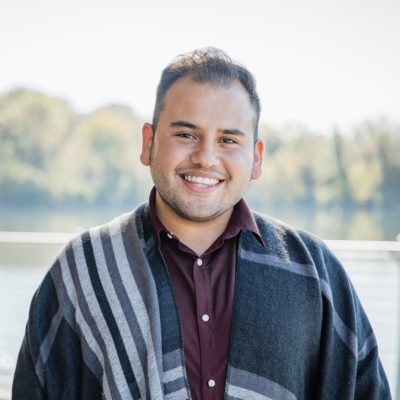
Vice President at Whiteboard Advisors
Carlos Ignacio Zavala brings a passion for equity and storytelling to his work at Whiteboard. In his role at Whiteboard, he supports a broad range of organizations (from early-stage startups to Fortune 500 companies) who are using data and technology to create new pathways to educational equity and economic mobility for all. He holds a Master’s degree from George Washington University and a Bachelor’s from George Mason University.
Carlos Zavala
Carlos Ignacio Zavala brings a passion for equity and storytelling to his work at Whiteboard. In his role at Whiteboard, he supports a broad range of organizations (from early-stage startups to Fortune 500 companies) who are using data and technology to create new pathways to educational equity and economic mobility for all. He holds a Master’s degree from George Washington University and a Bachelor’s from George Mason University.

Director of Northern Lights Collaborative for Computing Education
Jennifer Rosato is the Director of the Northern Lights Collaborative for Computing Education at the University of Minnesota, leading efforts to create more inclusive computing education opportunities. She has been supporting educators in K-12 and higher education in efforts to broaden participation in computing for over 20 years. She is passionate about collaborating with partners across systems and stakeholders to increase equity. She has led multiple grants and projects that provide curriculum and professional development for teachers and districts, is a CSforAll-MN steering committee member working on educational policy in Minnesota, and previously served as chair of the CSTA Board of Directors.
Jennifer Rosato
Jennifer Rosato is the Director of the Northern Lights Collaborative for Computing Education at the University of Minnesota, leading efforts to create more inclusive computing education opportunities. She has been supporting educators in K-12 and higher education in efforts to broaden participation in computing for over 20 years. She is passionate about collaborating with partners across systems and stakeholders to increase equity. She has led multiple grants and projects that provide curriculum and professional development for teachers and districts, is a CSforAll-MN steering committee member working on educational policy in Minnesota, and previously served as chair of the CSTA Board of Directors.
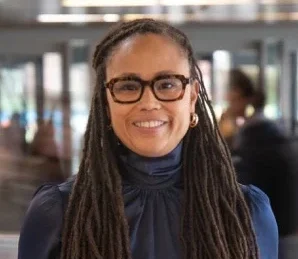
Director at Constellations Center for Equity in Computing
Tamara Pearson is the Constellations Center for Equity in Computing Deputy Director and Senior Director of Research and Programs at the Georgia Institute of Technology (Georgia Tech). Her work focuses on disrupting the root causes for the inequitable access, participation, and success of historically marginalized communities in computing. Dr. Pearson is the former inaugural Director of the Center of Excellence for Minority Women in STEM at Spelman College. In her two years in that role, she was successful in raising significant public and private funds, including a $5 million grant from Google to develop a data hub highlighting the unique needs and challenges of Black women in STEM, the largest ever grant of this kind from Google, and a $4.2 million Racial Equity in STEM Education grant from the National Science Foundation focused on the undergraduate of experiences of Black women in STEM. Prior to her work at Spelman, she served as Associate Director of School and Community Engagement at the Center for Education Integrating Science, Mathematics and Computing (CEISMC) at Georgia Tech, where she led K-12 school and district partnerships. Dr. Pearson holds a Bachelor of Science in Mathematics from Spelman College, with a minor in Computer Science, and an MEd and PhD in Curriculum and Instruction with a specialization in Educational Technology from the University of Florida.
Tamara Pearson
Tamara Pearson is the Constellations Center for Equity in Computing Deputy Director and Senior Director of Research and Programs at the Georgia Institute of Technology (Georgia Tech). Her work focuses on disrupting the root causes for the inequitable access, participation, and success of historically marginalized communities in computing. Dr. Pearson is the former inaugural Director of the Center of Excellence for Minority Women in STEM at Spelman College. In her two years in that role, she was successful in raising significant public and private funds, including a $5 million grant from Google to develop a data hub highlighting the unique needs and challenges of Black women in STEM, the largest ever grant of this kind from Google, and a $4.2 million Racial Equity in STEM Education grant from the National Science Foundation focused on the undergraduate of experiences of Black women in STEM. Prior to her work at Spelman, she served as Associate Director of School and Community Engagement at the Center for Education Integrating Science, Mathematics and Computing (CEISMC) at Georgia Tech, where she led K-12 school and district partnerships. Dr. Pearson holds a Bachelor of Science in Mathematics from Spelman College, with a minor in Computer Science, and an MEd and PhD in Curriculum and Instruction with a specialization in Educational Technology from the University of Florida.
Our Team
Our team consists of staff that is overseen by our board. We have multiple ongoing projects, including research and evaluation. If you have an interest in collaborating or need a researcher or evaluator for your upcoming project, please contact us.
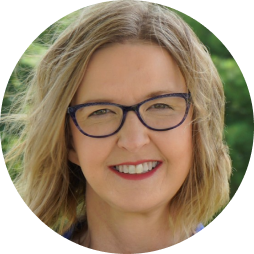
Dr. Monica McGill is passionate about computing education research, which has enabled her to form and lead the Institute for Advancing Computing Education (IACE) as a non-profit. In its first full year of operation (2021), she led the organization in securing over $2 million in grants from various national and international organizations, including the National Science Foundation, Google, and Amazon Future Engineers. Monica earned her B.S. in Computer Science and Mathematics from University of Illinois-Urbana Champaign, M.S. in Computer Science from George Washington University, and Ed.D. in Curriculum and Instruction from Illinois State University. Prior to forming IACE, she worked for several years in industry as a computer scientist and then as a tenured professor of computer science and game design/development for over 15 years.
Monica blends her experiences working in industry with her experiences conducting education research to break down barriers for students to participate in CS education. She has been conducting computing education research for over a decade. She has authored/co-authored over 70 articles related to computing education and is currently working as a primary investigator on several National Science Foundation (NSF) grants exploring CS education in the US. She also served as inaugural chair for the ACM-W North America committee, as a member of the Computer Science Teachers Association (CSTA) Board and Sjögren’s Foundation board and as an associate editor of the ACM Transactions on Computing Education.
Monica is a senior member of the Association of Computing Machinery and a member of ACM SIGCSE, IEEE, ASEE, NARST, AERA and CSTA.
Twitter: @VirtuallyFine
LinkedIn: monicamcgill
Dr. Monica McGill, Ed.D.
Dr. Monica McGill is passionate about computing education research, which has enabled her to form and lead the Institute for Advancing Computing Education (IACE) as a non-profit. In its first full year of operation (2021), she led the organization in securing over $2 million in grants from various national and international organizations, including the National Science Foundation, Google, and Amazon Future Engineers. Monica earned her B.S. in Computer Science and Mathematics from University of Illinois-Urbana Champaign, M.S. in Computer Science from George Washington University, and Ed.D. in Curriculum and Instruction from Illinois State University. Prior to forming IACE, she worked for several years in industry as a computer scientist and then as a tenured professor of computer science and game design/development for over 15 years.
Monica blends her experiences working in industry with her experiences conducting education research to break down barriers for students to participate in CS education. She has been conducting computing education research for over a decade. She has authored/co-authored over 70 articles related to computing education and is currently working as a primary investigator on several National Science Foundation (NSF) grants exploring CS education in the US. She also served as inaugural chair for the ACM-W North America committee, as a member of the Computer Science Teachers Association (CSTA) Board and Sjögren’s Foundation board and as an associate editor of the ACM Transactions on Computing Education.
Monica is a senior member of the Association of Computing Machinery and a member of ACM SIGCSE, IEEE, ASEE, NARST, AERA and CSTA.
Twitter: @VirtuallyFine
LinkedIn: monicamcgill

Dr. Julie Smith

Dr. Joseph Tise is a Senior Education Researcher at the Institute for Advancing Computing Education (IACE). He earned his B.S. in Psychology from Virginia Tech, M.S., and Ph.D. in Educational Psychology from Penn State, and completed a Postdoctoral appointment at Texas A&M University. He has expertise in self-regulated learning, theories of learning, student motivation, quantitative and mixed-methods research, and is experienced in conducting longitudinal research.
In his free time, Dr. Tise enjoys spending time with his family and friends, getting outdoors, and staying active.
Dr. Joe Tise
Dr. Joseph Tise is a Senior Education Researcher at the Institute for Advancing Computing Education (IACE). He earned his B.S. in Psychology from Virginia Tech, M.S., and Ph.D. in Educational Psychology from Penn State, and completed a Postdoctoral appointment at Texas A&M University. He has expertise in self-regulated learning, theories of learning, student motivation, quantitative and mixed-methods research, and is experienced in conducting longitudinal research.
In his free time, Dr. Tise enjoys spending time with his family and friends, getting outdoors, and staying active.
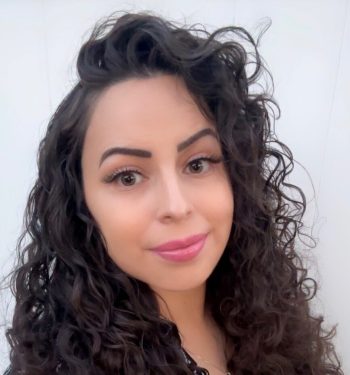
Jessica Rago earned her Bachelor’s in Science with a minor in Business Management and Organizational Leadership from St. Petersburg University. Her expertise is in event coordinating, digital marketing, operations, and project management.
In her free time, Jessica enjoys spending time with family and friends, being out in nature, traveling, and volunteering in her community.
Jessica Rago
Jessica Rago earned her Bachelor’s in Science with a minor in Business Management and Organizational Leadership from St. Petersburg University. Her expertise is in event coordinating, digital marketing, operations, and project management.
In her free time, Jessica enjoys spending time with family and friends, being out in nature, traveling, and volunteering in her community.
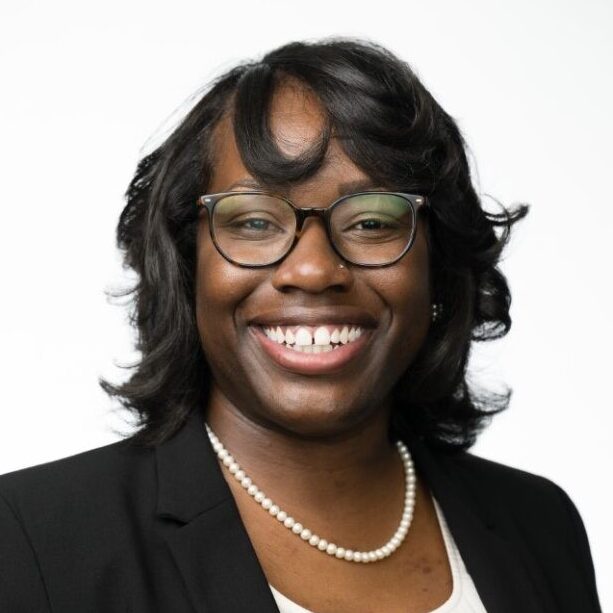
Megan Souter is an experienced Grants and Contracts Manager with expertise in post-award administration, compliance oversight, and financial management of large-scale federal and state-funded research programs. She brings over a decade of public sector financial experience, including prior roles in state-level auditing and tax compliance.
Megan holds an MBA and an MS in Finance from Webster University and is a Certified Grant Research Administrator through the University of South Carolina. She is known for her attention to detail, collaborative approach, and commitment to operational excellence.
In her spare time she enjoys traveling with her family, cooking, and reading news articles.
Megan Souter
Megan Souter is an experienced Grants and Contracts Manager with expertise in post-award administration, compliance oversight, and financial management of large-scale federal and state-funded research programs. She brings over a decade of public sector financial experience, including prior roles in state-level auditing and tax compliance.
Megan holds an MBA and an MS in Finance from Webster University and is a Certified Grant Research Administrator through the University of South Carolina. She is known for her attention to detail, collaborative approach, and commitment to operational excellence.
In her spare time she enjoys traveling with her family, cooking, and reading news articles.
Our Volunteers
In addition to the energetic, skilled staff, we are honored to have volunteers working to help us achieve our mission. Volunteers play an important role at IACE and we thank them for sharing their time and talent with us.

Dr. Emily Thomforde is the Computer Science Coordinator at the California Department of Education. She advocates for equity in K-12 Computer Science and supports teachers and districts in building rigorous pathways to deliver the California K-12 CS Standards. Emily is a BAFTA-winning video game developer, and has eight years of experience teaching computer programming, software development and engineering at libraries, prisons, museums, and public schools locally and abroad. Her curriculum development credits include Vidcode, Hopscotch, Code.org, STEM from Dance, Code Combat, and BrainPOP. Emily holds a PhD in Artificial Intelligence from the University of Edinburgh in Scotland, UK.
Emily Thomforde
Dr. Emily Thomforde is the Computer Science Coordinator at the California Department of Education. She advocates for equity in K-12 Computer Science and supports teachers and districts in building rigorous pathways to deliver the California K-12 CS Standards. Emily is a BAFTA-winning video game developer, and has eight years of experience teaching computer programming, software development and engineering at libraries, prisons, museums, and public schools locally and abroad. Her curriculum development credits include Vidcode, Hopscotch, Code.org, STEM from Dance, Code Combat, and BrainPOP. Emily holds a PhD in Artificial Intelligence from the University of Edinburgh in Scotland, UK.
K-12 Computer Science Education Research Center
We created the Resource Center with an amazing cast of people who have provided resources and support, including their time, thoughtful feedback, and insight into future ideas for the growth of IACE. A huge shout out to this wonderful group!
Principal Investigators
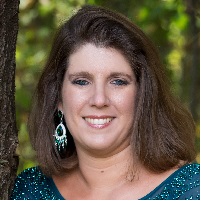
University at Buffalo
Adrienne Decker, Ph.D., is an Assistant Professor in the Department of Engineering Education at the University at Buffalo. Her areas of scholarship are computing education with a primary focus on how we teach introductory programming and providing tools and support for student learning computing concepts.
Adrienne Decker
Adrienne Decker, Ph.D., is an Assistant Professor in the Department of Engineering Education at the University at Buffalo. Her areas of scholarship are computing education with a primary focus on how we teach introductory programming and providing tools and support for student learning computing concepts.
Post-Doctoral Researcher (2020-22)

Brian McSkimming, Ph.D, is a postdoctoral associate in the Department of Engineering Education at the University at Buffalo. He is working with the data on evaluation instruments to explore learning heuristics and biases. He is also providing support for other parts of the project development.
Brian McSkimming
Brian McSkimming, Ph.D, is a postdoctoral associate in the Department of Engineering Education at the University at Buffalo. He is working with the data on evaluation instruments to explore learning heuristics and biases. He is also providing support for other parts of the project development.
Financial Support and In-kind Donations (2016-22)

Support for IACE includes direct funding from the U.S. National Science Foundation under grants #1625005, #1625335, #1757402, and #1933671

Support for IACE includes funding from SageFox Consulting Group and CSforAll under the U.S. National Science Foundation grant #1745199.

ACM provides an in-kind donation that provides us with the capability for open access to all DOIs from the ACM Digital Library
Graduate and Undergraduate Talent (2016-2022)
2021-22
2020-21
2019-20
2018-19
2017-18
2016-17
2024-2025
2024-25
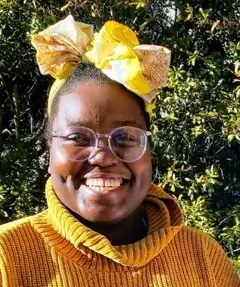
Charity Odetola is a Graduate Research Assistant at the Institute for Advancing Computing Education (IACE). She recently completed her Master’s degree and is currently pursuing a doctoral degree at the University of North Carolina at Greensboro in Educational Research and Methodology, specializing in Program Evaluation.
Charity Odetola is a Graduate Research Assistant at the Institute for Advancing Computing Education (IACE). She recently completed her Master’s degree and is currently pursuing a doctoral degree at the University of North Carolina at Greensboro in Educational Research and Methodology, specializing in Program Evaluation.
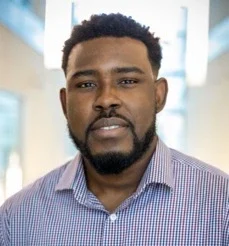
Precious Eze is a doctoral student in Engineering and Computing Education at Florida International University. Precious holds a Master’s in Chemical Engineering from the University of South Africa and a Bachelor’s in Chemical Engineering from Enugu State University of Science and Technology, Nigeria.
Precious Eze is a doctoral student in Engineering and Computing Education at Florida International University. Precious holds a Master’s in Chemical Engineering from the University of South Africa and a Bachelor’s in Chemical Engineering from Enugu State University of Science and Technology, Nigeria.
2022-24
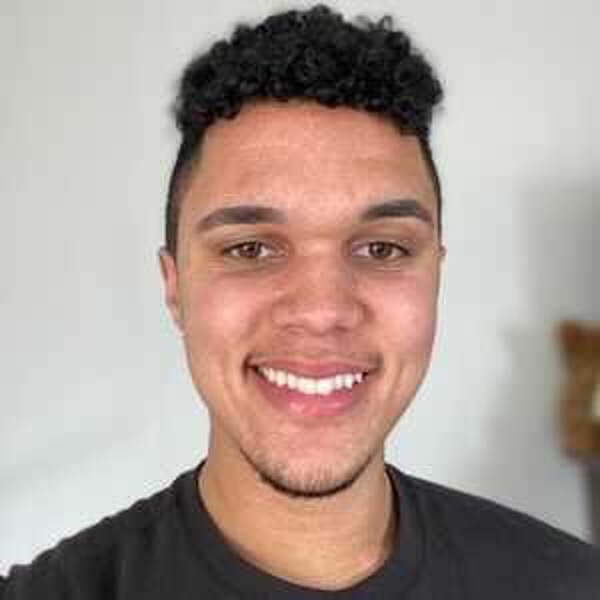

Joey Reyes, Undergraduate Student, Knox College, is conducting new research in computing education, including data synthesis, quantitative studies and systematic literature reviews.
Joey Reyes, Undergraduate Student, Knox College, is conducting new research in computing education, including data synthesis, quantitative studies and systematic literature reviews.

2020-21
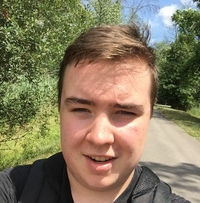
Sean Mackay, Graduate Student, University at Buffalo, is reviewing literature on retrospective evaluation instruments during summer 2020 and updating the Effectiveness of Technology Outreach Survey.
Sean Mackay, Graduate Student, University at Buffalo, is reviewing literature on retrospective evaluation instruments during summer 2020 and updating the Effectiveness of Technology Outreach Survey.

Emily Schroder, Undergraduate Student, Knox College, is working as a site administrator for REDCap, training REDCap users, and creating an automated system for sharing tips.
Emily Schroder, Undergraduate Student, Knox College, is working as a site administrator for REDCap, training REDCap users, and creating an automated system for sharing tips.
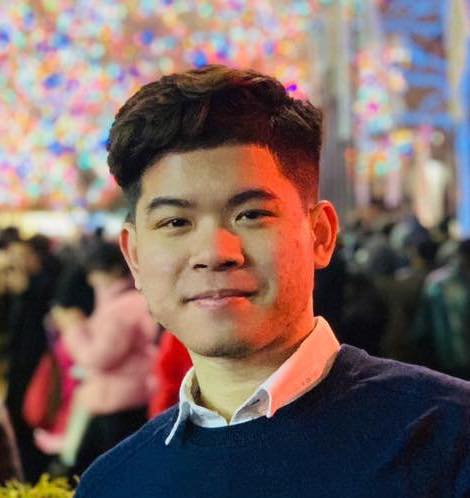
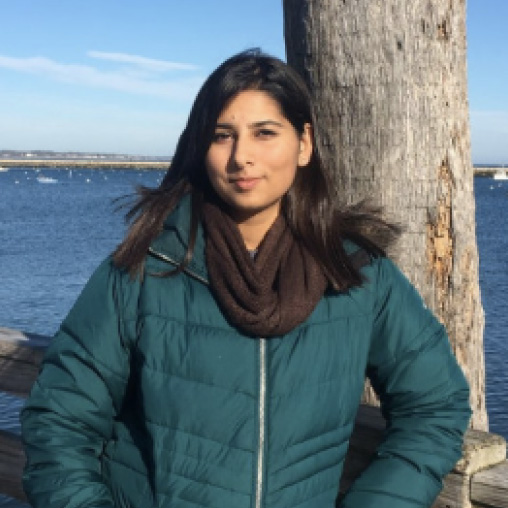
2019-20
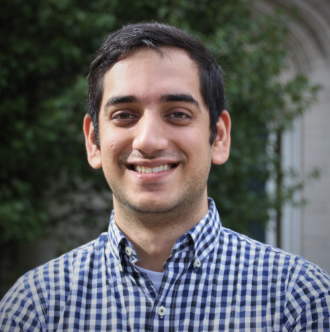
Momin Zahid, Undergraduate Student, Knox College, is currently serving as the Program Team Lead. He works across the development process and the entire devstack.
Momin Zahid, Undergraduate Student, Knox College, is currently serving as the Program Team Lead. He works across the development process and the entire devstack.

Sean Mackay, Undergraduate Student, University at Buffalo, is reviewing literature on retrospective evaluation instruments during summer 2019.
Sean Mackay, Undergraduate Student, University at Buffalo, is reviewing literature on retrospective evaluation instruments during summer 2019.


Nhan Thai, Undergraduate Student, Knox College, is conducting software development and developing the site’s Testing Plan and Automated Testing Integration.
Nhan Thai, Undergraduate Student, Knox College, is conducting software development and developing the site’s Testing Plan and Automated Testing Integration.

Bishakha Updhyaya, Undergraduate Student, Knox College, is working on integration of Tableau for visual representation of data that can be customized by users.
Bishakha Updhyaya, Undergraduate Student, Knox College, is working on integration of Tableau for visual representation of data that can be customized by users.
2018-19

Momin Zahid, Undergraduate Student, Knox College, is currently serving as the Program Team Lead. He works across the development process and the entire devstack.
Momin Zahid, Undergraduate Student, Knox College, is currently serving as the Program Team Lead. He works across the development process and the entire devstack.

Trang Tran, Undergraduate Student, Knox College, has worked on enhancing the site to make it more useful. She works across the development process and entire devstack.
Trang Tran, Undergraduate Student, Knox College, has worked on enhancing the site to make it more useful. She works across the development process and entire devstack.

Bishakha Updhyaya, Undergraduate Student, Knox College, is working within Tableau during summer 2019 to convert important data into meaningful infographics.
Bishakha Updhyaya, Undergraduate Student, Knox College, is working within Tableau during summer 2019 to convert important data into meaningful infographics.

Sean Mackey, Undergraduate Student, University at Buffalo, is reviewing literature on retrospective evaluation instruments during summer 2019.
Sean Mackey, Undergraduate Student, University at Buffalo, is reviewing literature on retrospective evaluation instruments during summer 2019.

